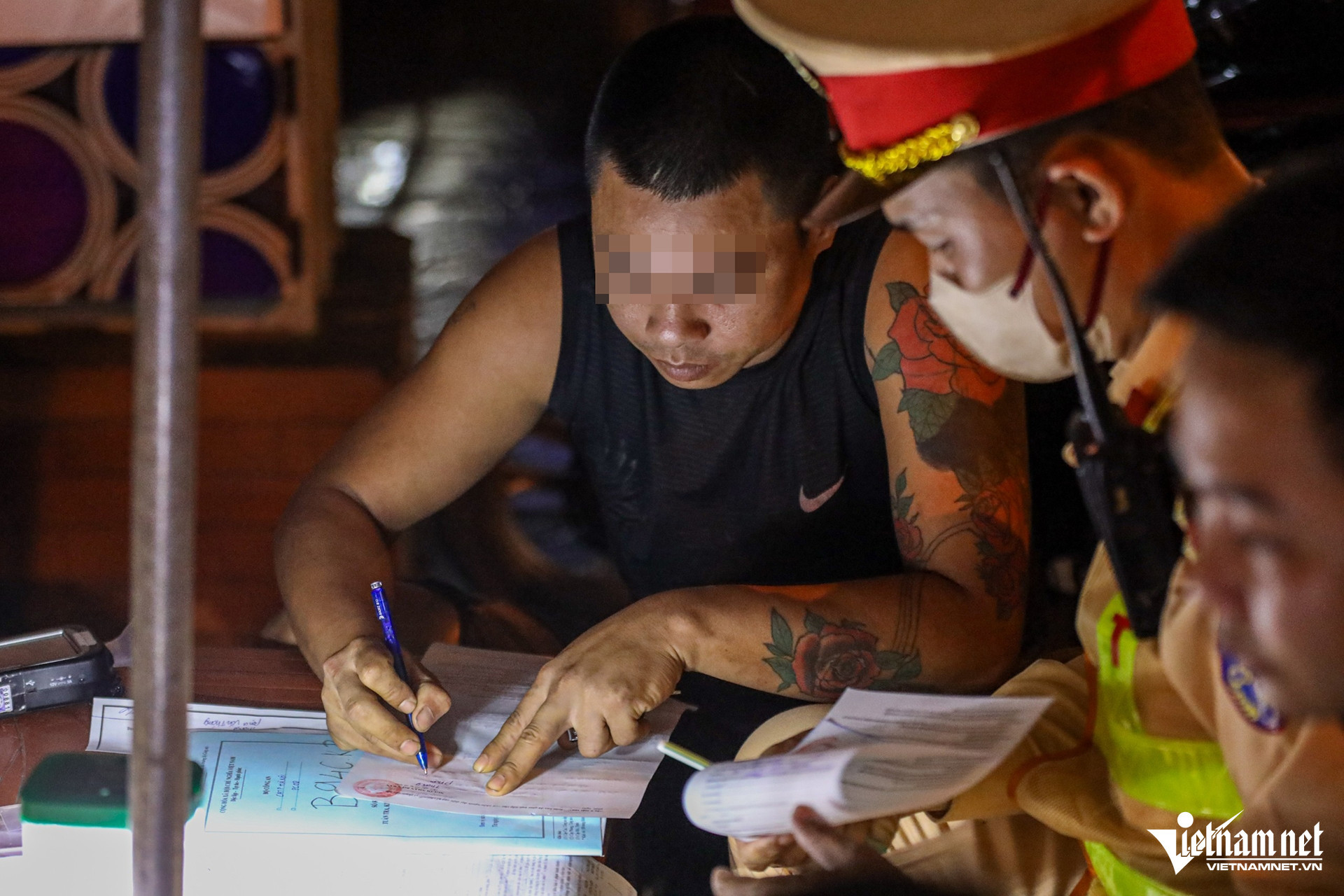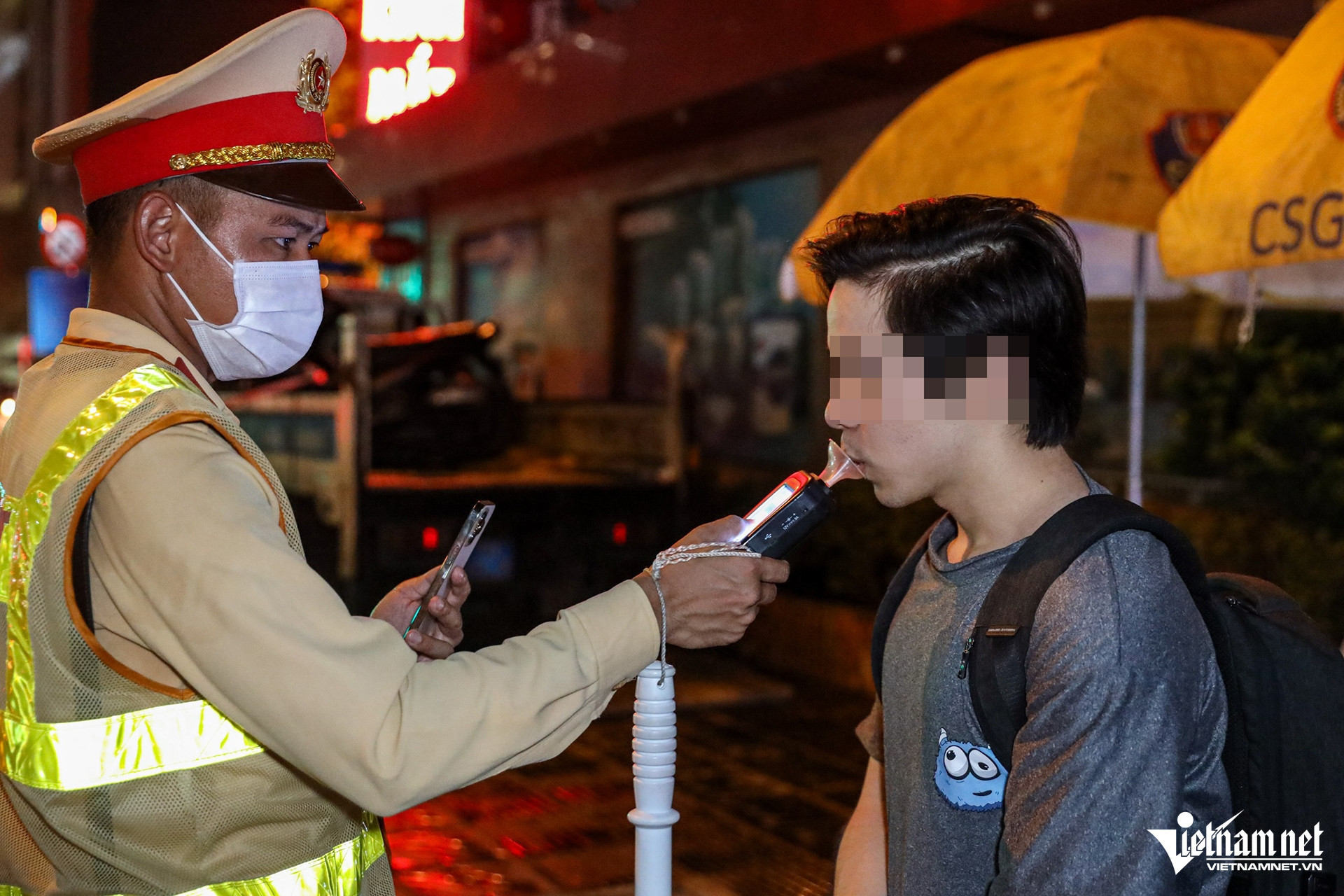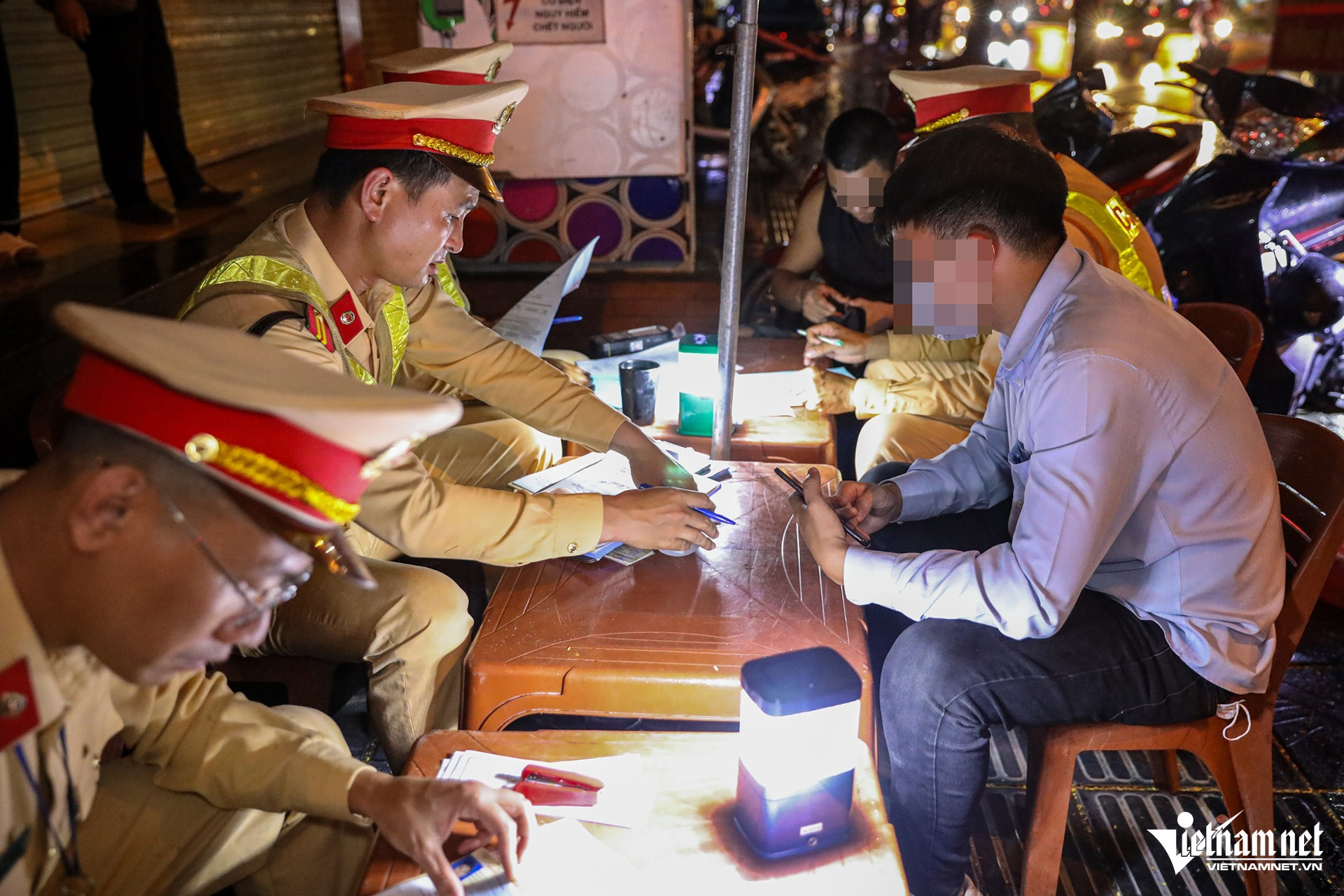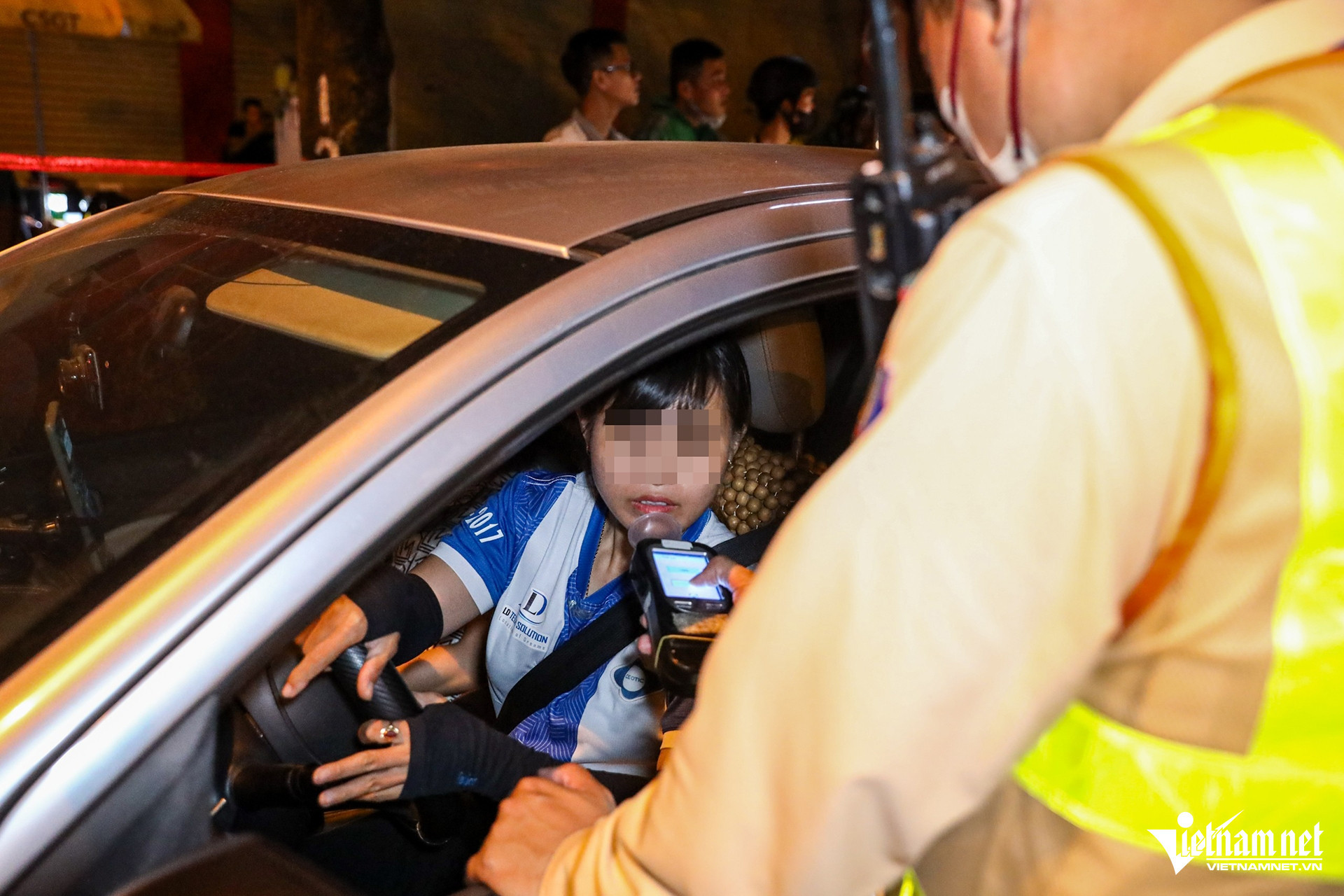On the evening of June 28, the Road Traffic Police Team No. 6 set up a checkpoint on Le Duc Tho Street (Nam Tu Liem District, Hanoi) to monitor alcohol violations among drivers.
 |
 |

The functional forces blocked a lane to check both car and motorbike drivers without distinguishing between male and female drivers. At 8:30 p.m., the team consecutively discovered three motorcyclists violating alcohol limits.

At 8:30 p.m. the same day, the Task Force consecutively discovered three cases of motorbike drivers violating alcohol concentration limits.
One notable case involved driver P.V.T. (born in 1991, residing in Ninh Binh), who was found driving a motorbike with license plate 35K1 - 528.XX, with an alcohol concentration of 0.505 mg/L of breath—1.3 times higher than the maximum violation prescribed in Decree 100. Additionally, P.V.T. was carrying two passengers, and none of them were wearing helmets.

Driver T. admitted to the traffic police that he drank 7-8 glasses of beer after work to cool off before driving home. The traffic police fined him for multiple violations: exceeding the legal alcohol concentration, not wearing helmets, and not having a driver's license.

As the night progressed, more cases of drunk driving were detected.
Another driver, N.D.A. (born in 2001, residing in Hanoi), was caught driving a motorbike with license plate 29L1-450.XX, with an alcohol concentration of 0.327 mg/L of breath.

N.D.A. was unable to present a driver's license or vehicle registration. Consequently, he faced fines for violating alcohol concentration limits, not having a driver's license, and not having vehicle registration, with potential fines up to 7 million VND and a 7-day vehicle impoundment.

After more than four hours at the checkpoint, the Working Group discovered over ten cases of alcohol violations, many at very high levels.
Lieutenant Colonel Pham Van Chien, Captain of Traffic Police Team No. 6, noted that since tightening inspections, public compliance has significantly improved. However, some motorcyclists remain negligent and deliberately violate the law.

According to Lieutenant Colonel Chien, the unit will continuously change the time, route, and location of alcohol checkpoints to prevent violators from evading checks. The inspections apply equally to both male and female drivers.
Dinh Hieu